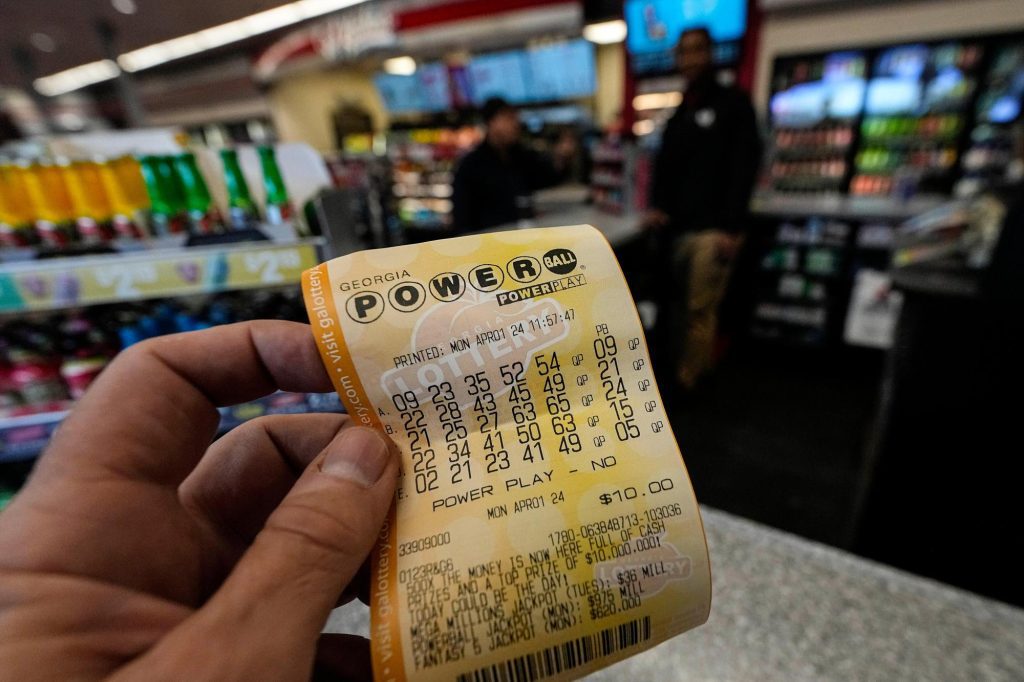By SCOTT McFETRIDGE (Associated Press)
On Saturday night, Powerball will tie a record for the longest time without a jackpot winner, spanning over three months.
This prolonged lack of winners has allowed the Powerball jackpot to reach $1.23 billion, making it the 8th largest in U.S. lottery history. This shows that the game is working as planned, with very slim chances creating a huge prize that attracts people to spend $2 on a ticket.
This means that no one should expect to match all six numbers and become wealthy, although it's likely that someone will eventually win.
The most recent Powerball jackpot winner was on New Year’s Day, when a player in Michigan won $842.4 million.
Since then, there have been 40 consecutive drawings without a jackpot winner. The 41st drawing on Saturday night will equal the record for the most drawings, which was previously set twice in 2022 and 2021.
The streak of no winners is not a coincidence. Lottery officials set the odds at 1 in 292.2 million in the hope that the jackpots will continue to grow with each of the three weekly drawings, until the top prize becomes so massive that more people take notice and participate.
The odds used to be much better, at 1 in 175 million, but were made more difficult in 2015 to create these enormous jackpots. At that time, lottery officials also made it easier to win smaller prizes, and they point out that the overall odds of winning something are about 1 in 25.
It's difficult to imagine what odds of 1 in 292.2 million mean.
One way to think about it is to consider the roughly 322 million people who live in areas where they can buy Powerball tickets — five states don’t participate. If each person bought one ticket, you would expect one person to win and hundreds of millions of people to lose.
In other words, the odds of winning the jackpot are slightly worse than flipping a coin and getting heads 28 times in a row, according to Andrew Swift, a University of Nebraska-Omaha mathematics professor.
Out of all the people who bought lottery tickets for the last drawing on Wednesday night, only 22.6% of the 292.2 million potential number combinations were purchased, according to the Multi-State Lottery Association. This means that 77.4% of number combinations were not purchased, and it explains why winning a jackpot is so rare.
It's important to remember that the odds of an individual ticket winning never change, but as more people play, more number combinations will be purchased, and the chances of someone winning will increase.
As challenging as the Powerball odds are, they are slightly better than those of Mega Millions, the other nearly national lottery game, which has jackpot odds of 1 in 302.6 million. Additionally, someone won a $1.13 billion Mega Millions prize last month.
Undoubtedly, the Powerball jackpot is a huge amount of money, but it's actually less than you might expect.
This is because while officials publicize the $1.23 billion prize, that amount is for a single winner who chooses to receive payments through an annuity, with an initial payment followed by annual payments over 29 years. Winners almost always choose the cash option, which for Saturday night's drawing would be an estimated $595.1 million.
No matter how the money is received, a large part of the prize would be used to pay taxes, but the exact amount would depend on the winners' other money and if their state taxes lottery prizes. Just remember that the highest federal income tax rate is 37%, so a significant portion of the prize would be given to Washington.









